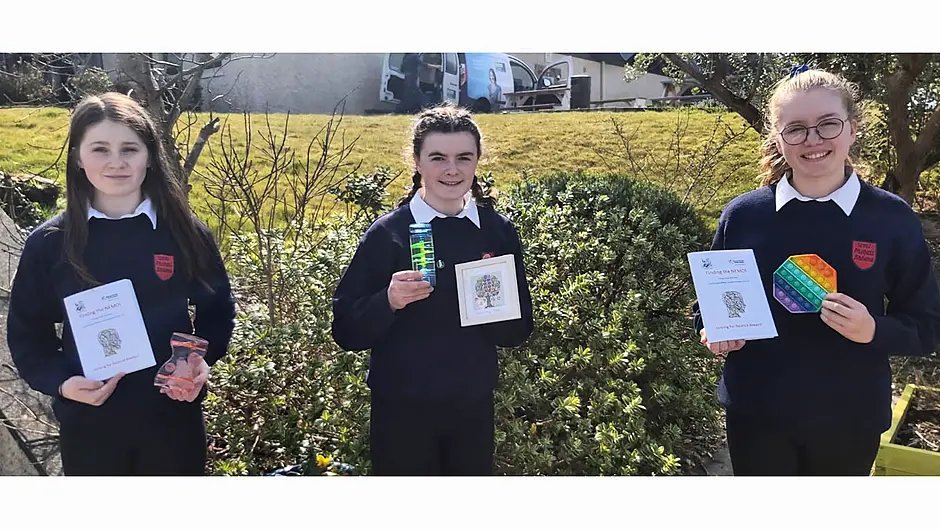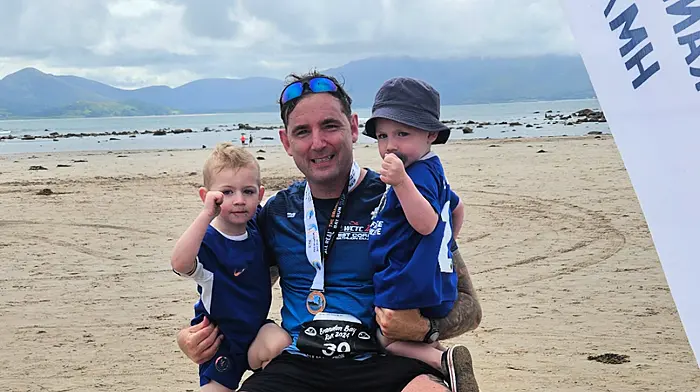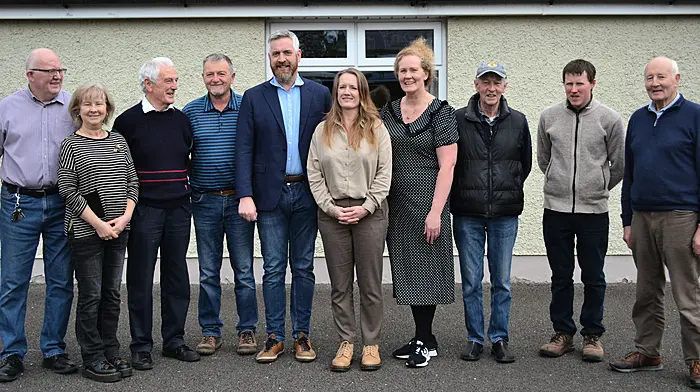FOMO, Fobo and Foji have all been studied by the transition year students at Scoil Phobail Bheara in Castletownbere.
The acronyms are easily identified by those with a fear of missing out, the fear of better options, or indeed the fear of joining in.
What the 20 students have essentially studied is anxiety among people of all ages, what causes it, and how best to overcome it.
The impressive project – entitled Finding the Nemo – has earned the students a €500 bursary as part of the Dragon’s Den Young Social Innovator initiative so they can develop their project.
Anxiety, they say, is the body’s natural response to stress. It is a feeling of fear or apprehension about what is to come, such as the first day of school, going to a job interview, or giving a speech may cause most people to feel fearful and nervous.
But today it seems there is no end to the kind of anxieties one can experience including Bromo, which is when a friend refrains from posting pictures from their night out for fear of making anyone feel left out, or Slomo, which is the gradual feeling that one is missing out.
Although it may sound like the students have taken a lighthearted approach to their study, they have in fact used their time wisely during the pandemic to get up close and personal with Nemo – nearly but not fully missing out.
‘There was little to miss out on during the restrictions,’ the students said in their report, ‘and in some ways our lives were far less complicated.’
That sense of freedom from the known is of course Jomo – the joy of missing out, or as the students said, ‘A positive belief that cutting off all social media and digital devices can induce a state of bliss.’
To get an insight into anxieties, the students did a lot of research through surveys, interviews, and presentations from professionals.
Through their work they are hoping to raise awareness, educate themselves and the school community, as well as learn new skills to manage anxiety.
They have arrived at some interesting conclusions such as the need for health promoting radio and TV ads around recognising and managing anxiety.
They suggest that a national awareness and education campaign – similar to road safety campaign – is necessary because post pandemic anxiety levels have never been as high.
The group of students were also industrious in designing and printing a series of posters explaining each of the ten anxieties and have compiled a 64-page book outlining each of them, plus recommendations for how to prevent or manage them.
Creatively, they have designed ‘anxiety distraction boxes’ – which are on the market as fidget boxes – for preschool, primary school students, teenagers, and adults and they believe they should be available in all settings to help people manage their own anxiety.
The boxes are already available at Scoil Phobail Bheara and are proving very helpful in grounding students who are dealing with anxiety.








